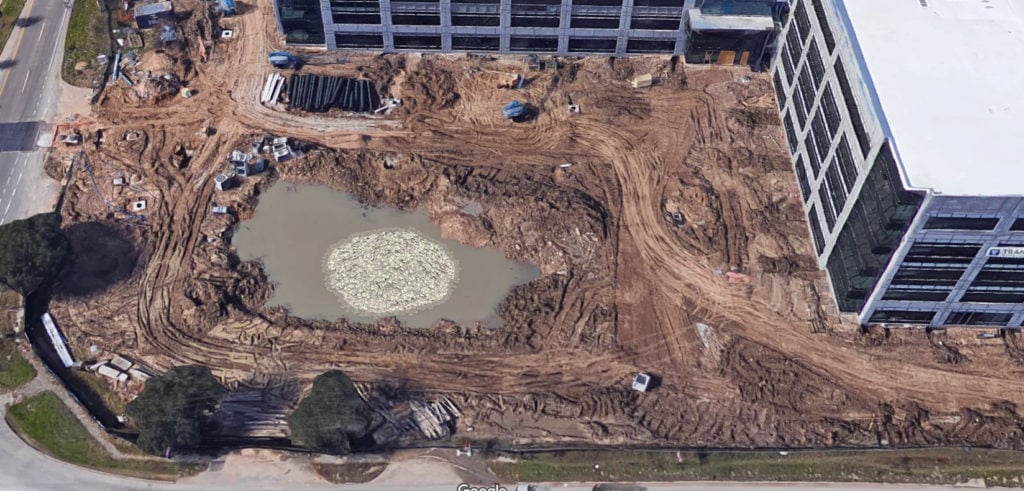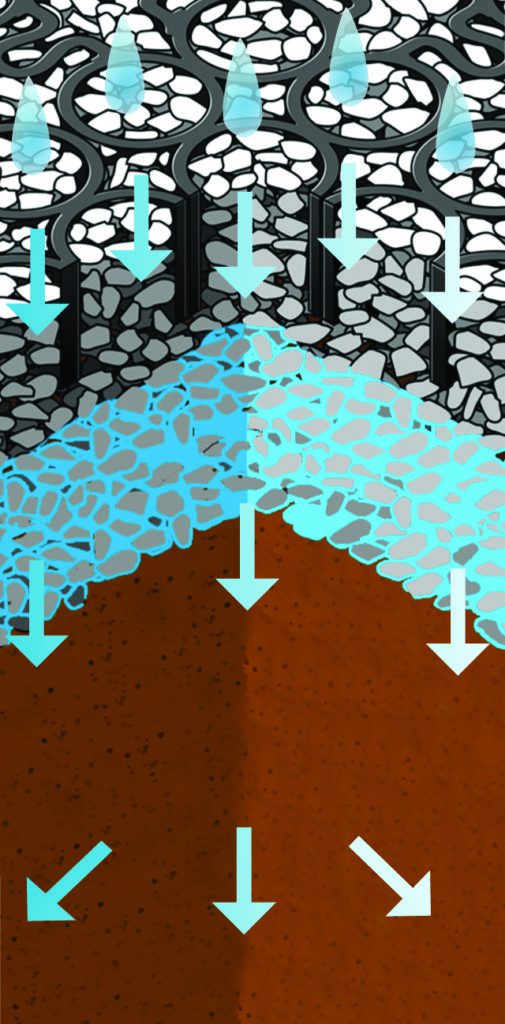No structure is immune to flooding, but there are ways to reduce the risk and mitigate the damage. For commercial properties, the stakes are even higher: At least one-quarter of businesses that close their doors after a flood never reopen.
Because they are generally larger and costlier to build, commercial properties tend to be disproportionately affected by floods. In one region, fewer than 20% of commercial structures were in floodplains, yet these properties accounted for more than 50% of damage from flooding.
It’s more important every day to account for the extreme weather that causes flooding: Heavy rains have increased by 37% over the past 70 years in the Midwest, and the region is predicted to have the greatest increases in precipitation going forward. Though floods are inevitable, you can take steps to reduce the damage by thinking through where you’re most vulnerable and how to redirect floodwater.
Permeable Paving: A Triple-Threat Solution
This helps slow down or prevent peak flows that could more quickly overwhelm the ground and make flooding worse. It also offers a more attractive solution than concrete and helps boost water quality by making it easier to remove pollutants from the runoff.
1. Cost

Traditional solutions such as concrete, asphalt, and gravel are expensive. In addition to construction costs, they require building separate drainage systems such as detention ponds or levees. Both of these add expenses at installation as well as maintenance costs over time.
A permeable solution is less of a dent to your wallet, and because the pavers let water flow through, there’s no need for the added costs of a separate drainage and detention system.
Even better, it may be fundable under the Federal Emergency Management Agency’s grant programs.
2. Longevity

As the plague of potholes across the country proves, hardscape surfaces just don’t hold up well to any kind of weather. Whether you’re in the North, where freezing is an issue, or in the South, where you’re in a wet-dry cycle of seasons, concrete and asphalt tend to crack. Once again, that means spending far more on maintenance: If these surfaces are not well-cared for, they have much shorter life spans.
Permeable paving, on the other hand, is more flexible. It “hugs” the earth and moves with its seasonal shifts, which cuts out the work and cost of maintenance in the long term.
3. Effectiveness

Permeable paving is truly one of the most effective ways to reduce flooding in the first place because it’s extremely effective in draining and rerouting floodwater. This solution’s open pores redirect water rather than having it build up, giving the floodwater an escape and keeping it from threatening your property. Research shows that permeable paving can reduce runoff by up to 50 percent — a major decrease in the potential for flood damage.
Floods may be a fact of life, but you have control over the damage they cause. Using permeable paving keeps floodwater away from your commercial property, providing flood prevention that’s less expensive, more durable, and more effective. That’s the best armor your property can have against floods.
| To learn more about improving your stormwater management through permeable pavers, read our whitepaper. |




